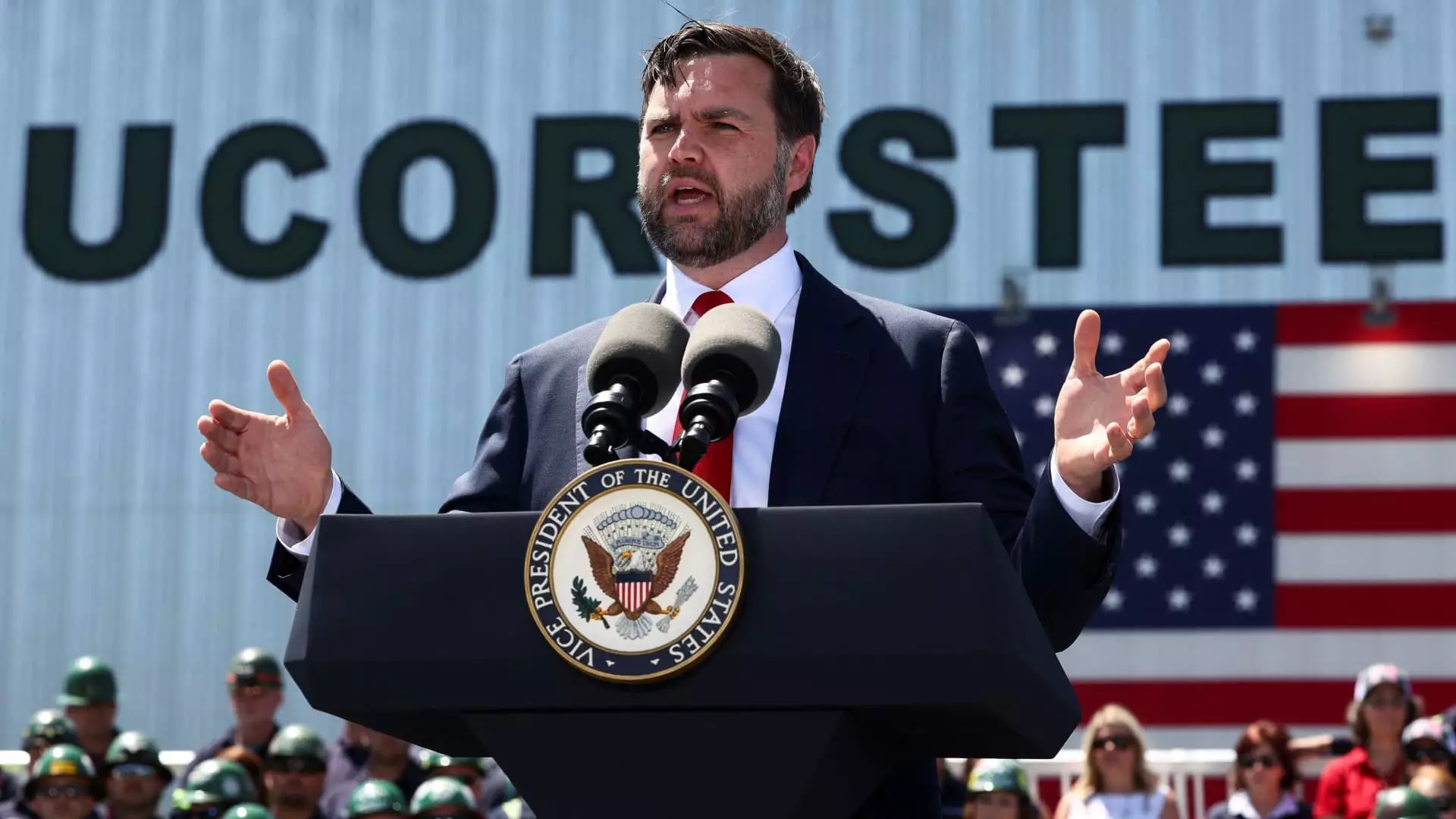The current financial landscape is fraught with complications, yet President Donald Trump and Vice President JD Vance seem to be playing a high-stakes game with the Federal Reserve in their demand for lower interest rates. This approach may sound appealing—who doesn’t want cheaper loans and wider access to credit? However, when viewed through the lens of fiscal responsibility and economic integrity, such demands raise serious concerns. Vance’s recent statement promoting lower rates as a remedy for modest inflation can only be described as economic malpractice. It trivializes the complex mechanisms that govern our economy and places undue pressure on the Fed.
Ignoring the Bigger Picture
It’s bewildering how Trump and Vance are seemingly fixated on the surface-level indicators of economic health while disregarding broader implications. The Bureau of Labor Statistics recently reported a 0.1% increase in the Consumer Price Index (CPI), which neither indicates a crisis nor justifies aggressive rate cuts. While their narrative hinges on easing inflation data and Chair Jerome Powell’s cautious approach, it appears that they are more interested in political optics than fostering genuine economic resilience. The insistence on a one-percentage-point cut—a significant shift with potentially long-lasting ramifications—betrays an alarming lack of foresight.
Tariffs: The Double-Edged Sword
They proudly tout tariffs as a mechanism for bolstering domestic production, yet they are hesitant to acknowledge the very real price pressures these trade policies exert on consumers. The irony is stark: they are championing lower interest rates while promoting an economic policy that could undermine purchasing power in the long term. This contradiction should raise red flags. A fleeting retreat in inflation numbers should not compel us to overlook the economic principles that suggest we must stabilize growth through prudent management, not reckless stimulation.
A Panel of Economists vs. Political Puppetry
While the markets currently assign a negligible probability to a rate cut, this reflects a collective apprehension grounded in economic expertise. Stakeholders, including entities such as J.P. Morgan Wealth Management, are rightfully wary of acting too hastily. Elyse Ausenbaugh’s insightful remarks underscore a fundamental truth: the economy is a living organism that requires careful nurturing, not impulsive action dictated by political whims. But alas, it seems that financial prudence is being overshadowed by populist rhetoric, leading us down a precarious path.
The Critique of Immediate Gratification
At its core, the Trump-Vance partnership in this monetary crusade epitomizes a broader societal issue: the pursuit of immediate gratification over sustainable growth. They advocate for an approach that could refresh consumer markets in the short term, yet they may be sowing the seeds of future economic instability. It’s crucial that we take a moment to evaluate the long-term repercussions of such policies, rather than succumbing to the seductive allure of cheaper borrowing.
In this political climate, the appeal for lower interest rates sounds like an anthem for the masses, but we must challenge such notions that lack substance and forethought. Instead of jeopardizing the backbone of our economy under the guise of assistance, strong leadership should involve navigating complexities with wisdom and integrity, resisting the urge to simply play to the crowd.

